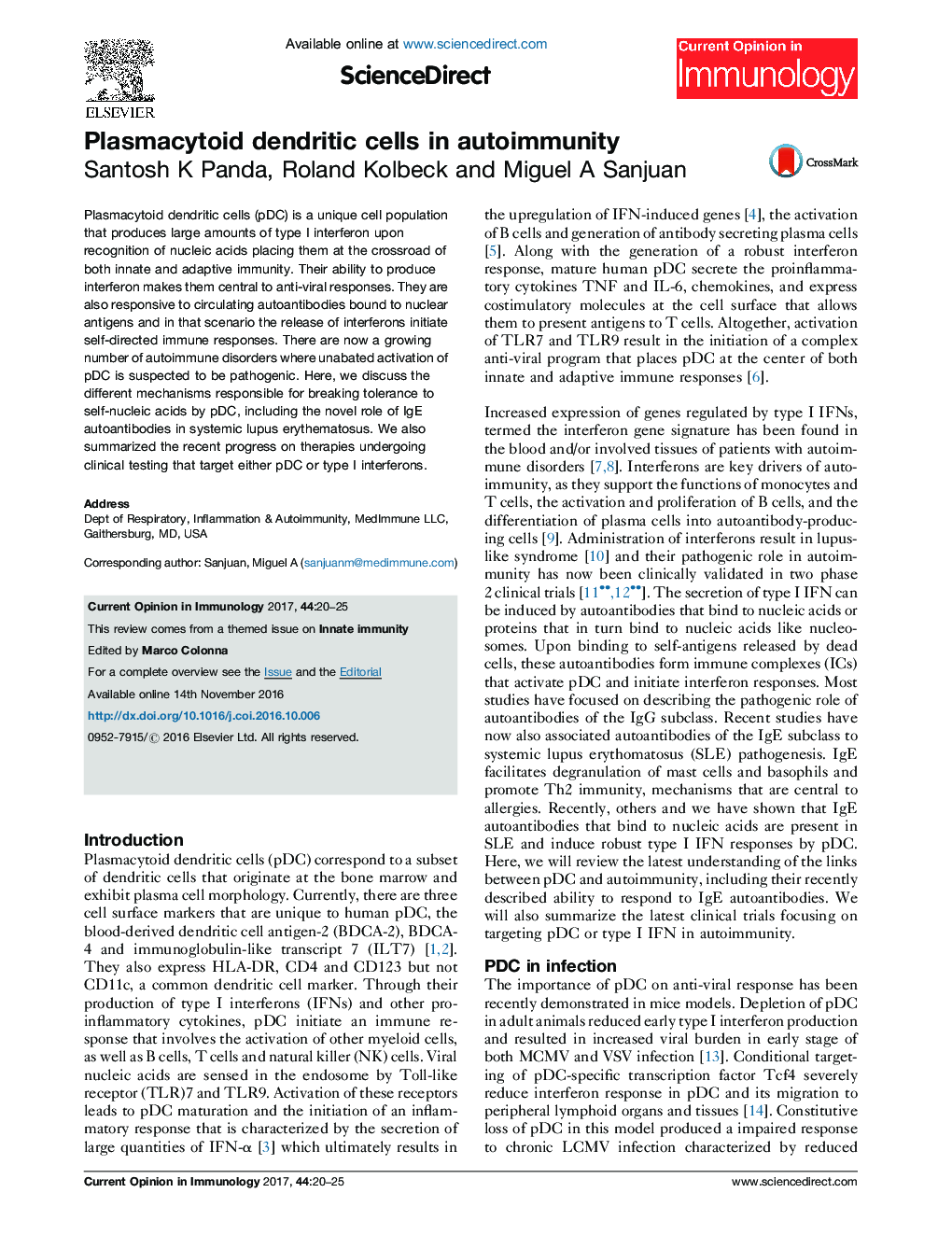| Article ID | Journal | Published Year | Pages | File Type |
|---|---|---|---|---|
| 5665768 | Current Opinion in Immunology | 2017 | 6 Pages |
â¢Autoantibodies against self-nucleic acids form immune complexes that are central in autoimmune disorders like SLE.â¢Nucleic acids containing immune complexes trigger Type I IFN response in pDC.â¢IgE autoantibodies against nucleic acids synergize with IgG autoantibodies on eliciting pDC responses and contribute to the loss of tolerance to self-nucleic acids.â¢Targeting pDC or type1 IFN appears a promising therapy in SLE.
Plasmacytoid dendritic cells (pDC) is a unique cell population that produces large amounts of type I interferon upon recognition of nucleic acids placing them at the crossroad of both innate and adaptive immunity. Their ability to produce interferon makes them central to anti-viral responses. They are also responsive to circulating autoantibodies bound to nuclear antigens and in that scenario the release of interferons initiate self-directed immune responses. There are now a growing number of autoimmune disorders where unabated activation of pDC is suspected to be pathogenic. Here, we discuss the different mechanisms responsible for breaking tolerance to self-nucleic acids by pDC, including the novel role of IgE autoantibodies in systemic lupus erythematosus. We also summarized the recent progress on therapies undergoing clinical testing that target either pDC or type I interferons.
